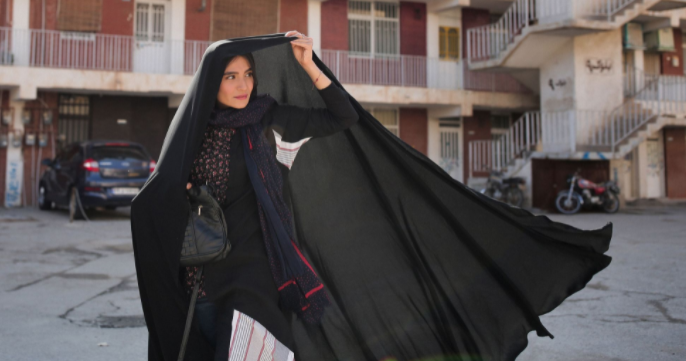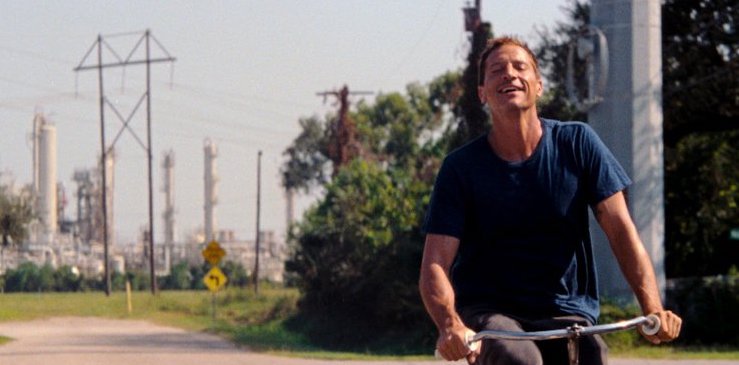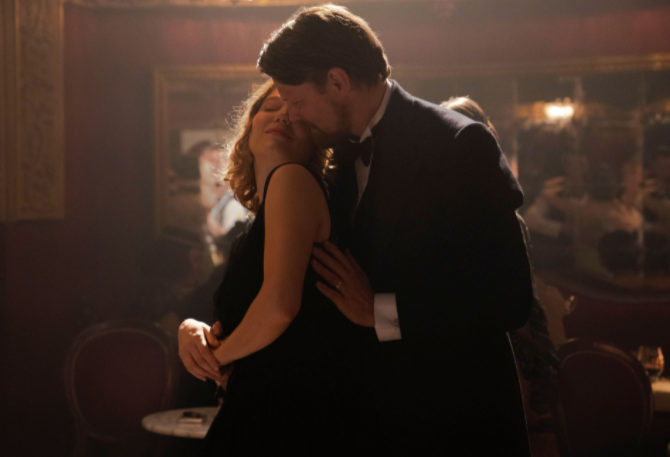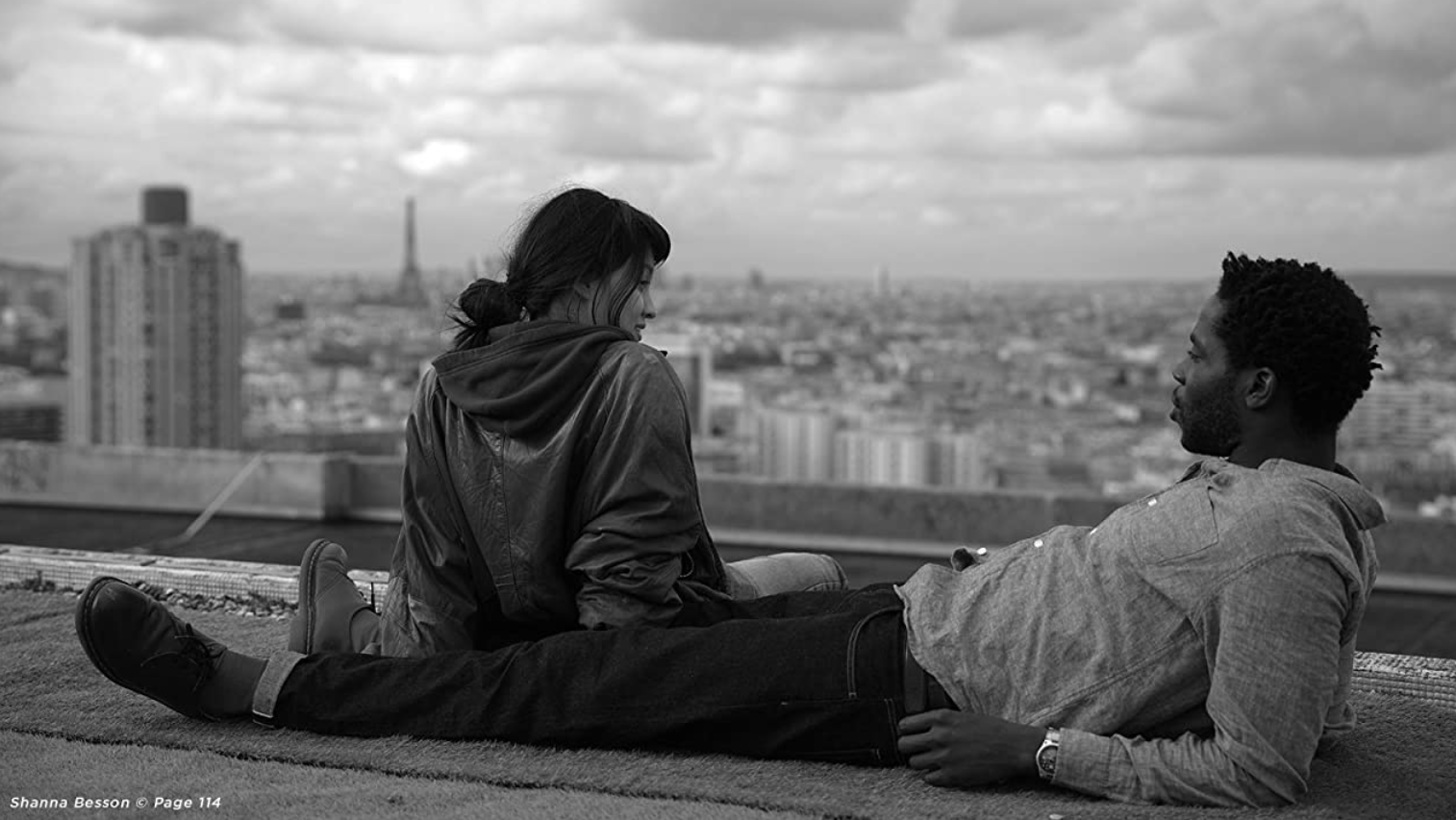TFE has been proud to bring you double-sized Cannes coverage this year for the first time, direct from Cannes itself, as well as companion screening suggestions at home.

by Elisa Giudici
July, 14th: Bastille Day! Let me be honest with you, I totally forgot the holiday was today (time becomes an endless flow/blur during Festivals) but in the morning every hotel, resturant and administrative building was covered by a lot (a lot) of French flags. Happy to report that inbetween two screenings, I was able to see the magnificent fireworks exhibition on the sea with a spectacular view from the press room.
Even happier to report that there were fireworks in the Competition screenings, too...

A Hero (Asghar Farhadi)
COMPETITION FILM
Farhadi returns to Iran after an arguably disappointing exploration of international cinema (The Past, Everybody Knows) and he returns to Cannes with a major comeback. Rumors said Fremaux asked him to be in the Jury this year but he wanted to be in competition instead. Smart move, because A Hero could easily win the Palme D'or. Like Wes Anderson though their styles couldn't be more different, Asghar Farhadi is able to build a new story from his preferred narrative skeleton, again and again. Farhadi's never ending interest, which can give his films deep meaning, is how we continuously compromise our morality in order to live our life.
This time the small event from which the story starts is an act of kindness by the protagonist, a man who is spending time in debtor's prison. On a two days earned parole, he finds a bag with some gold in it and, after considering to sell it to end his prison time, he starts searching for the woman who lost it.
Farhadi's main character is a good man with pure intentions, but the man he himself owes money to has moral grounds to expect it. No one is lying but also no one is telling the whole truth, and in this little discrepancy Fahradi grows his dramatic take on who is actually a hero and how human nature makes us suspicious of kind acts more than shady ones. One novelty this time is how Farhadi adds social media's impact to his equation.
This screenplay here is pure gold, with a solid cast and maybe the best ending at Cannes this year. It is easy to predict Farhadi as a major character (again) in the upcoming Oscar season.

Red Rocket (Sean Baker)
COMPETITION FILM
Such firework again and more Palme d'Or vibes -- what a competition! The way in which Sean Baker is able to cast improbable leading actors such as Simon Rex (Oscar buzz starts now) and new comers such as Suzanna Son and give them a career-defining role is beyond me. Red Rocket is another movie of his exploring America (more precisely Texas) where people struggle financially and dream to escape to California at the age of 17 or 45 years old, with a couple of bucks in pockets (if not running completely naked through the city), and the goal to become a (porn) star.
Rex's character Mickey is an famous former porn actor who never grew out of his teenage narcissism. He seems unaware that he is now old news. He's unable to plan his life according to his age and more than willing to repeat the same mistakes to regain a little bit of spotlight in California's porn industry. (The movie is set during 2016's presidential campaign between Trump and Clinton, suggesting the end of an era for this Texas town (and America in general).
Trend alerts: In Red Rocket we see another male full frontal and the general inability to keep clothes on: Cannes '74 nakedness is confirmed, again. After Titane's genius usage of "Macarena" and Red Rocket's evocative presence of NSYNC's "Bye Bye Bye" it is official: '90 musical nostalgia is a thing among Cannes' auteurs.

The Story of my Wife (Ildikó Enyedi)
COMPETITION FILM
The defections during this one were numerous because the new movie by Golden Bear winner Ildikó Enyedi is really a let down (and an absurdly long one at that). That's a pity, considering the amazing production values of this '20S costume drama with an international cast lead by Léa Seydoux playing a mysteriously maddening femme fatale. Gijs Naber plays Jakob Störr, a sea capitan who does not like posh people and life on dry lands. He asks a total stranger named Lizzy to marry him right after meeting her without asking himself what she is trying to avoid by answering yes You can basically write by yourself the rest: is she faithful to him? Is she not? Why is he so mad at her if he was more than aware that fidelity couldn't be expected from a stranger with a lot of friends (such as the likes of Louis Garrel) and a lot of secrets?
What's the point here? I like ambiguous melodramas in general but it was a burden to watch this one, so I can't recommend it. In a festival with such a strong appetite for sex, intercourse in The Story of my Wife was joyless and artificial, even with Lea Seydoux -- always reliable as a femme fatale interpreter -- in the leading role.

Les Olympiades / Paris 13th District (Jacques Audiard)
COMPETITION FILM
Thank you Audiard for proving that 69 year-old directors can portray the life of zoomers without embarassing themselves. Nanni Moretti should really have seen this adaptation of Adrian Tomine's graphic novels that follows, with an attentive but non-judging eye, the lives of teenagers having sex to create emotional connections, human bonds and steam off work frustrations in contemporary Paris. At least they are trying to, but before and after (a lot of) sex there is always the difficulty of leaving an individualistic point of view to be together in spirit and not only with bodies. Audiard senses a social revolution here, one in which everyone lives together by being self sufficient (or trying too), replacing the family-based model with something yet to be figured out. This is no cautionary tale (though there's maybe a hint of mistrust in the Tinder like approach to relationships) but an energetic, sometimes joyous tale of four grown ups living in 13th arrondissement in Paris with a bold attitude but very few clear ideas of the future (in that way it's similar to Joachim Trier's competition film Worst Person...). Shot in a sharp and cool black and white, Audiard new movie is the product of his cooperation with younger talents: it is cowritten with Céline Sciamma and Léa Mysius, with a pop/electric soundtrack curated by Pierre-Marie Dru and Rone.
Sometimes Les Olympiades lacks concreteness as its character and errs on being a little too easy, or light headed. The movies has some flaws, but it also has energy to spare and it's intriguing. I especially loved the performances of Lucie Zhang as a young woman rewriting her cultural identity while trying to find the right distance between herself and her sexual interests of the moment, and the amazing Noémie Merlant (Portrait of a Lady on Fire), an icon of untold lesbian desire.
Previously
Diary Entry #1 Annette
Diary Entry #2 Everything Went Fine, Onada, Yasha-ga-ike
Diary Entry #3 Worst Person in the World, Velvet Underground, Lingui, etc
Diary Entry #4 Benedetta, La Fracture, Mothering Sunday
Diary Entry #5 Flag Day, Compartment No 6, Mariner of the Mountains
Diary Entry #6 The Innocents, Drive My Car
Diary Entry #7 The French Dispatch, Three Floors, Petrov's Flu, Bergman Island
Diary Entry #8 Titane, Lamb, Moneyboy